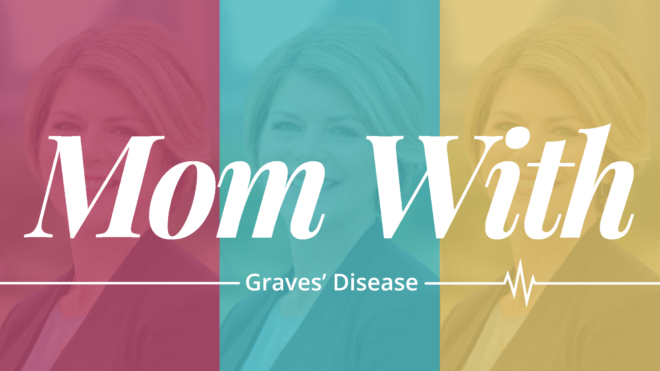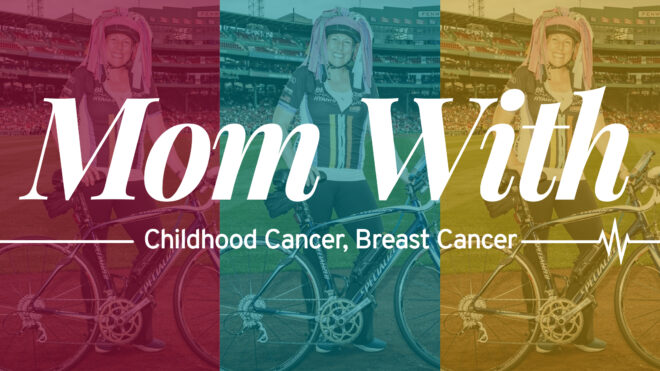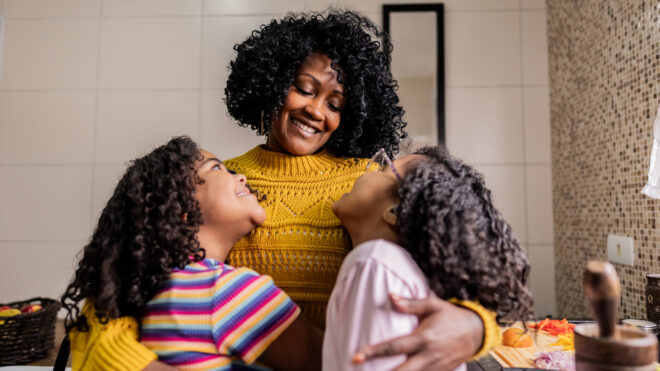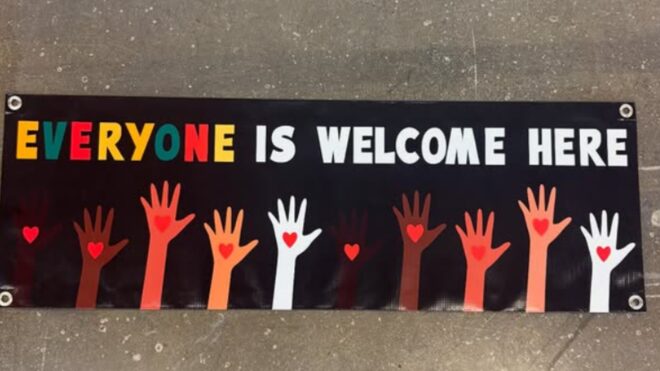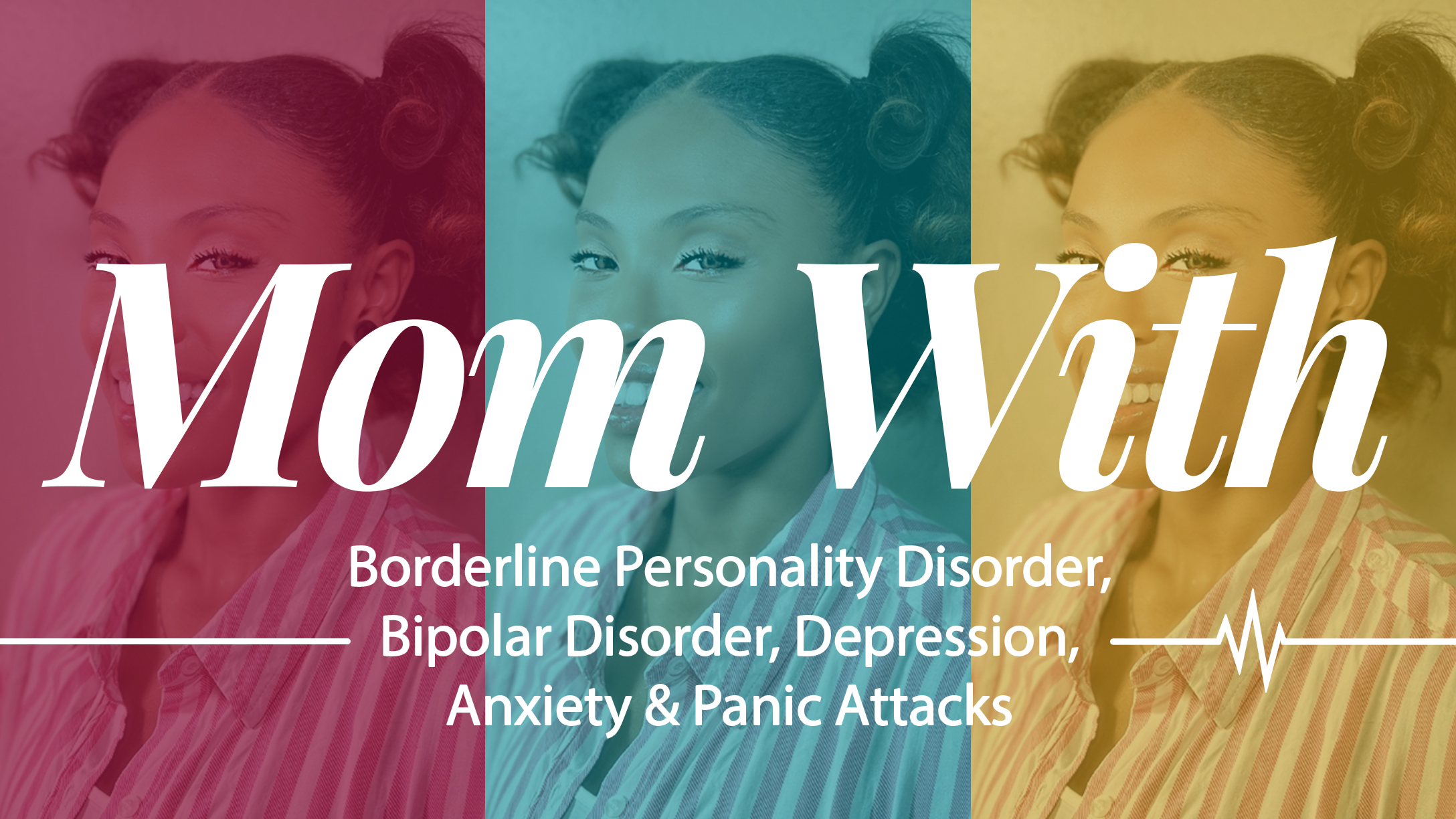
Our monthly column MOM WITH aims to redefine what it means to be a “normal” mother by focusing on how it feels to live with a mental disorder. We see you, we hear you, and we’re in this together.
Javen Hilton, also known as Javen Elizabeth, is a mental health advocate. Why? Javen suffers from borderline personality disorder, bipolar disorder, depression, anxiety, and panic attacks. Javen is also mom to two boys, 8 and 3 years old.
“Growing up the oldest of five, from a Black single mother with low income in a high-end neighborhood, was not easy. I was the product of teenage parents who could not get along even if their lives depended on it,” Javen tells us. “Inevitably I experienced a lot of childhood trauma. I grew up to later understand that my mother had experienced her own trauma that was inevitably passed down to me.”
Javen started experiencing symptoms of mental disorders in her early adolescent years.
Her mind would become filled with loud multiple voices talking at the same time. Her emotions began to fluctuate throughout the day, and each emotion felt more intense than the last. Minor inconveniences would send me her into a trance, and life began to feel overwhelming. To cope, Javen began to engage in self-harm, running away to family members’ homes, and she experienced suicidal ideations, reckless behavior, and angry outbursts when triggered.
“Growing up in a Black family where mental health was not talked about or even taken seriously was truly difficult,” she says. “And because of that, it made it extremely challenging to understand myself and what was truly going on with me internally. I was misdiagnosed at age 13 with an adjustment disorder. So, it wasn’t until my early adult years I was properly diagnosed with Borderline personality disorder, anxiety, depression, and panic attacks, and began treatment.”
Javen credits becoming a mother for saving her life.
She says she became so depressed that when she got pregnant at 16, she kept her son to save her life. “The thought of having an abortion made me want to die with him on the table,” she shares.
Javen gave birth to her first son on May 1, 2013, and she graduated from high school a year ahead of her class in June the following month with her son in her arms. From hearing her son’s heartbeat to looking into his eyes for the first time, Javen felt illuminated with love and a new kind of motivation. She now had more reasons than ever to live but says her biggest push was to be the best mother for her son.
“Living with borderline personality disorder can have a significant impact on the life of a mother,” explains psychologist Taylor Remington, founder of Impact Recovery Center. “Mothers living with BPD may struggle with managing day-to-day activities, such as caring for their children and maintaining personal relationships. Many mothers with BPD find it difficult to regulate emotions due to intense mood swings, impulsive behavior, and difficulty in forming secure attachments with their children. This can lead to feelings of alienation, guilt, and low self-esteem.”
To stay healthy, Javen takes daily prescribed medication to help manage her symptoms and sees a psychiatrist once a month.
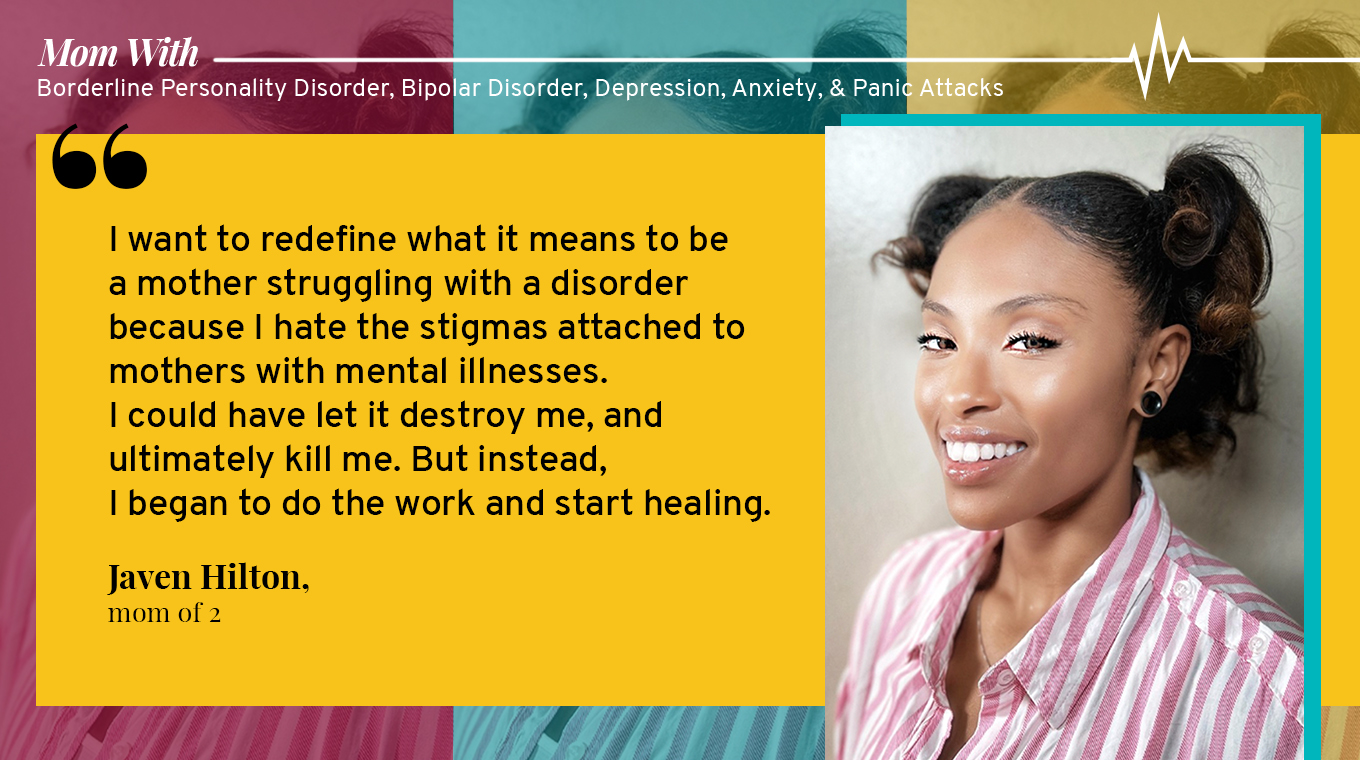
Mothers living with borderline personality disorder are more likely to struggle with depression, Remington explains. BPD is associated with intense feelings of emptiness, which can lead to depressive symptoms such as sadness, fatigue, and loss of pleasure in activities. It also is common for mothers with the disorder to experience suicidal ideation or attempts.
“I feel my disorder affects me as a mother by causing me to become easily overstimulated or overwhelmed with emotion,” Javen tells us. “I feel like my children saved me in a lot of ways. I was extremely suicidal before having my children but becoming their mother gave me reasons to live. However, throughout my motherhood journey I have carried guilt with me for this same reason.
“I began to question if it was fair to my children to have to carry the weight of being my reason to live,” she adds. “Don’t they deserve a mom that just wants to live? Don’t they deserve that picture-perfect mom that has it all together? I’ll never forget what a coworker told me a few years back who is also a mother of color because it spoke volumes to me. She said, ‘Always remember your kids don’t need a perfect mom — they need a happy one.’ And I’ll never forget that.”
For Javen, success with managing her symptoms goes up and down.
Some days she feels like she has it all together and is cured of her illness, and other days she questions if she had children for the right reasons and if it’s fair for them to carry the burden of her mental health issues. There are times when Javen feels overwhelmed by her toddler’s meltdown and must turn away and take a few breathes before consoling him. This is something that ALL mothers can relate to.
On the other hand, days where she sees her children’s progress can instantly lift her spirits. “This is a joy for me because I really get to begin to see his bright and adventurous personality,” Javen says. “It fills me with happiness to see this once tiny little infant transform into a little person. It’s also the thing that keeps me going.”
Children are amazing at picking up on energy, and that includes when Javen is having a hard time. She says when her sons can sense she is having a tough day, they will approach her slowly with open arms and a big heart. She says that sometimes when she’s having a bad day, her 3-year-old will even come over to her and give her a kiss on the cheek.
The goal of this column is let moms who struggle with mental health issues know that they are not alone.
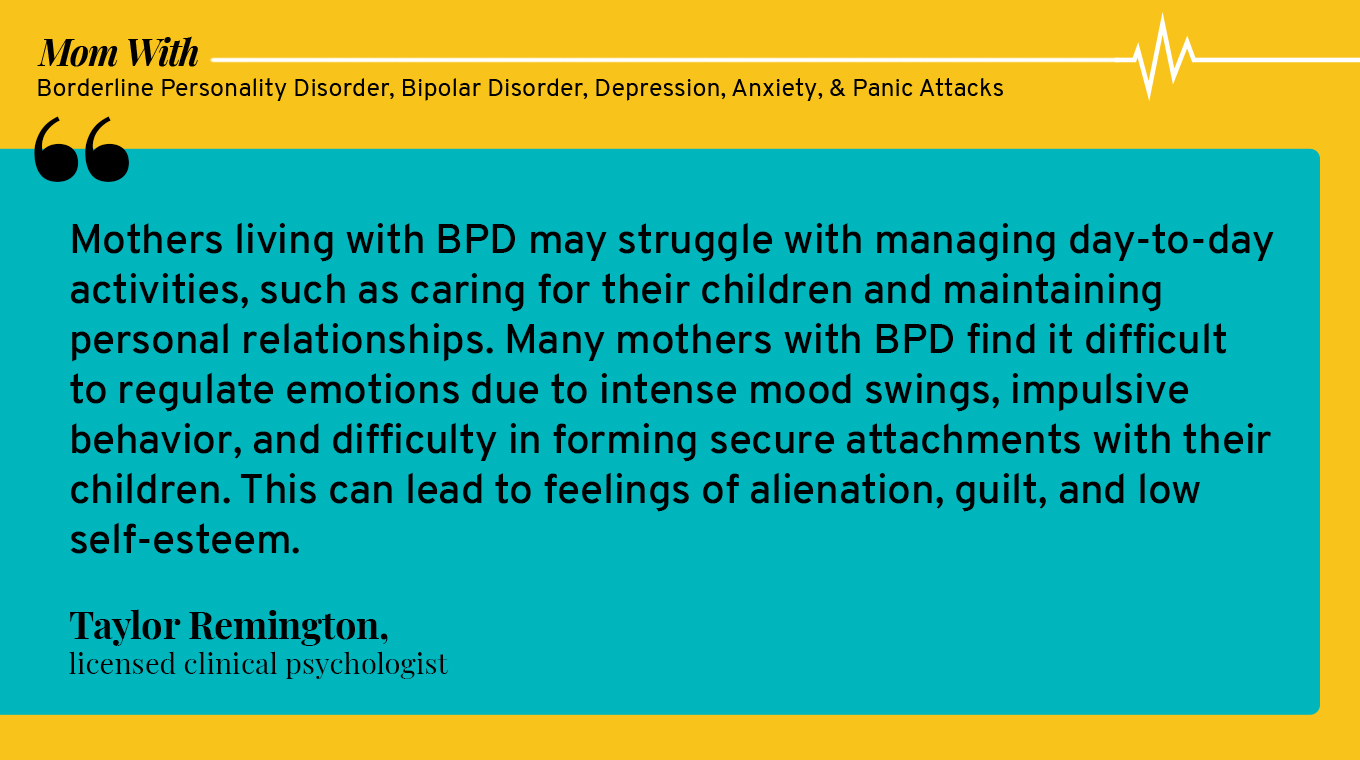
There are moms who are going through what you are, and you don’t need to feel the stigma of being a mom with a mental health issue. Javen wants other moms to know that it’s OK not to be OK sometimes. It’s OK to ask for help when you need it. The village they say it takes to raise our children works just as well to support mothers.
Javen wanted to use her voice for good, so she became a mental health advocate on TikTok. She created her own website for all her supporters to gain access to resources. In addition, Javen launched a line of pressure vests that can help sooth overstimulation and anxiety and created a self-help workbook filled with information, questions, and coping skills that truly helped me personally. On top of all this, Javen even began hosting BPD support groups because she knows how hard it is to struggle without any support.
“I want to redefine what it means to be a mother struggling with a disorder because I hate the stigmas attached to mothers with mental illnesses,” she affirms. “I could have let it destroy me and ultimately kill me. But instead, I began to do the work and start healing like so many other moms out there.”

